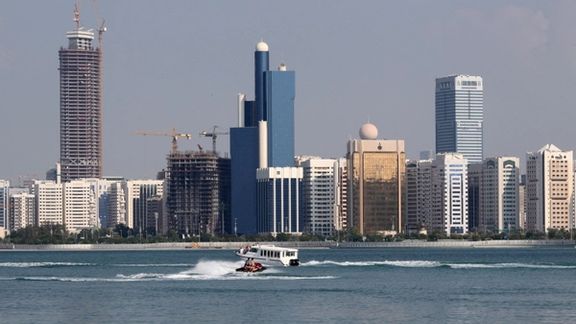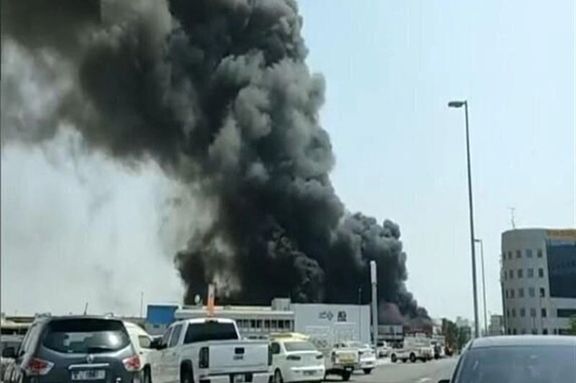Entire UAE Within Houthis' Reach, Minister Tells Iran Agency

The Houthi information minister told an Iranian news agency the group’s drone attack on Abu Dhabi was a message that the UAE is within reach of Yemeni rebels.

The Houthi information minister told an Iranian news agency the group’s drone attack on Abu Dhabi was a message that the UAE is within reach of Yemeni rebels.
Zeifollah al-Shami told the Revolutionary Guards (IRGC) affiliated Tasnim news agency in an interview after Monday's attack that the most important message of the Houthis operation was telling the United Arab Emirates that there would be retaliation if the UAE continued to attack Houthi forces.
Yemen's Iran-backed Houthi rebels Monday targeted a key oil facility in Abu Dhabi and the UAE capital's international airport with explosive-laden drones launched from Sana'a airport, the Saudi-led Coalition that backs Yemen's internationally recognized government said Monday.
The Houthi drone strike coming amid indirect talks between the United States and Iran to revive the 2015 nuclear talks might add another negative factor in to the complicated process. Saudi Arabia, UAE, Bahrain and Israel say that Iran’s support for militant groups is a serious threat to regional stability and an agreement with Iran should also tackle this issue in addition to Tehran’s nuclear program.
The UAE also hosts the US Navy and other forces. The Houthi threat could also be seen as a threat against the presence of the US military.

According to the Abu Dhabi police, three fuel tanker trucks exploded in the industrial Musaffah area near oil storage facilities firm Abu Dhabi National Oil Company, adding that a separate "minor" fire broke out at a construction site of the emirate’s main airport. Houthis’ military spokesman claimed responsibility for the two incidents and said they had launched a military operation "deep in the UAE" and would announce details in coming hours.
"The attack by the [Houthi] Yemeni armed forces against the UAE was part of a legal and legitimate response that was carried out in retaliation for the escalation of war by the UAE and its continuous military actions against the people of Yemen," he told Tasnim.
In its report on today's attack, another IRGC-affiliated news agency, Fars, said it was the Houthis' "concrete warning to Abu Dhabi for continuing its aggression in Yemen despite [earlier] warnings."
The attacks on Abud Dhabi Monday involved 20 drones and 10 ballistic missiles, Fars said in a report entitled "The Reason for the Yemeni Attack on Abu Dhabi Today", while calling it the "biggest strike on the UAE in the country's 50-year history."
The UAE has substantially reduced its involvement in Yemen and the Houthi claim os Emirati aggression seems overblown.
Iran-backed Houthi group conducts regular cross-border missile and drone attacks against targets in Saudi Arabia and the Saudi-led coalition has retaliated with air strikes inside Yemen. Houthi claims of attacks inside the UAE, however, have been rare and mostly denied by Abu Dhabi.
Earlier this month the Houthis hijacked a UAE-flagged cargo vessel heading to the Saudi port of Jizan, just north of Yemen. The Houthis claimed the vessel was a “military cargo ship” carrying equipment into Yemen’s territorial waters to engage in “hostile acts”.
In 2019 the UAE, a member of the Saudi-led coalition that has been fighting Iran-backed Houthi forces for over seven years, scaled down its military presence in Yemen amid heightened regional tensions with Iran.
Iran and Saudi Arabia held talks last year with Iraqi mediation to mend their broken diplomatic relations. Iran and the UAE have also been moving toward a reproachment recently after years of tensions in their relations.